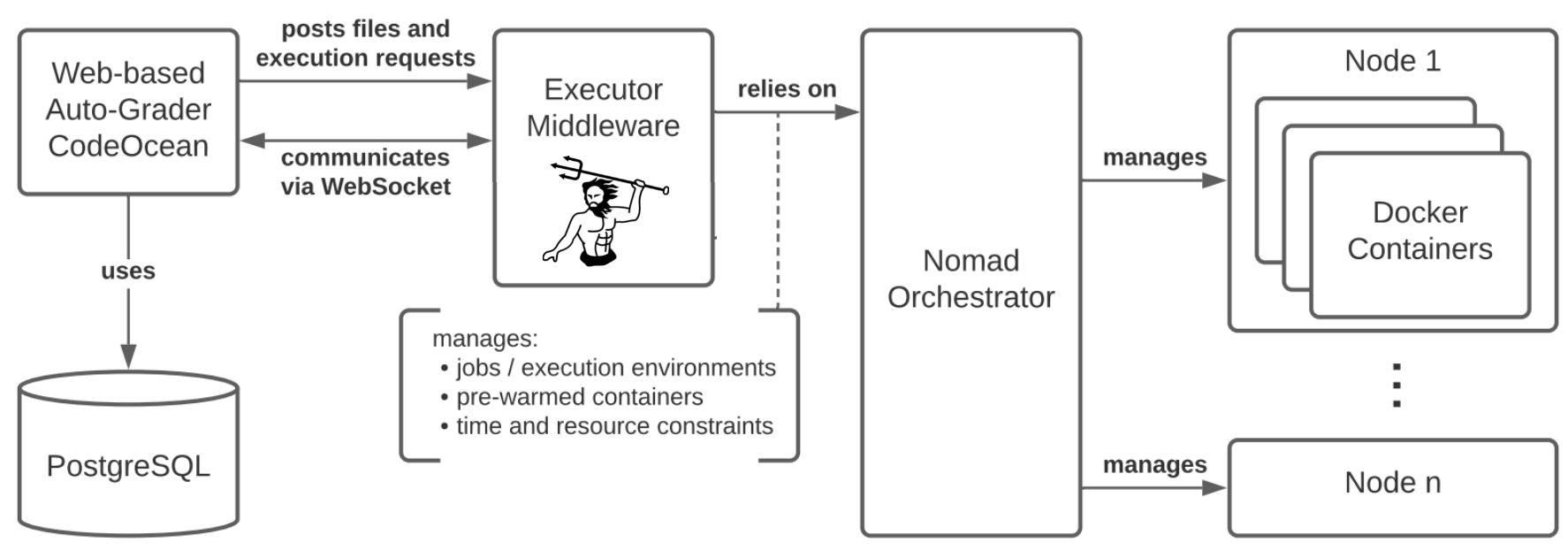In today's unattended upgrade, we have seen how the prewarming pool size dropped to (near) zero. This was based on lost Nomad allocations. The allocations got rescheduled, but not added again to Poseidon. The reason for this is a miscommunication between the Event Handling and the Nomad Manager. `removedByPoseidon` was true even if the runner was not removed by the manager, but an idle runner.
Poseidon

Poseidon provides containerized execution of arbitrary user code inside a Docker container for learning purposes. It has two main purposes:
- Securing the executions so that they are isolated from each other and from the host system.
- Being scalable enough to provide hundreds of executions per minute.
Poseidon also offers a live I/O connection to the running program via WebSocket.
Poseidon is designed to be used with CodeOcean, a code-execution provider and auto-grader used in MOOC platforms.
Poseidon requires a Nomad cluster for scheduling its executions, which needs to be set up separately.
Documentation
For the OpenAPI 3.0 definition of the API Poseidon provides, see the swagger.yaml.
For the rest of the documentation see the docs folder. It describes...
- some aspects of the development workflow including setup guide. You should read this first when starting out with the project.
- configuration of the system.
- security configurations (how to active access control and TLS with Poseidon).
- how Poseidon integrates Nomad in its architecture.
Contributing
Bug reports and pull requests are welcome on GitHub at https://github.com/openHPI/poseidon. This project is intended to be a safe, welcoming space for collaboration, and contributors are expected to adhere to the code of conduct.
License
Poseidon is available as open source under the terms of the MIT License.
Code of Conduct
Everyone interacting in this project's codebases, issue trackers, chat rooms and mailing lists is expected to follow the code of conduct.
